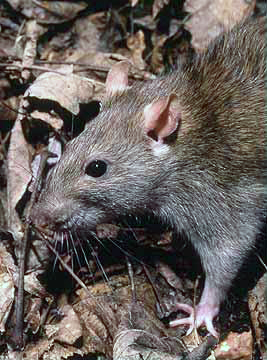Health officials in El Paso County, Colorado have confirmed that a rat breeding facility in in the county is linked to a multistate outbreak of Seoul virus. There are two confirmed human cases in El Paso County. To date, 13 human cases have been reported in the current outbreak in several states.

The Centers for Disease Control and Prevention (CDC) recently identified pet rats as the source of the outbreak of Seoul virus that includes 16 states. According to CDC, the infected rodents have been distributed or received in Alabama, Arkansas, Colorado, Illinois, Indiana, Iowa, Louisiana, Michigan, Minnesota, Missouri, North Dakota, Pennsylvania, South Carolina, Tennessee, Utah, and Wisconsin.
Symptoms of Seoul virus include fever, headache, chills, nausea, rash, inflammation or redness of the eyes, and normally begin within 1 to 2 weeks after contact with infectious material. In rare cases, infection can also lead to kidney disease and/or failure. The majority of infections are usually moderate, and some people do not experience any symptoms. Those who have had contact with rats recently, and who experience these symptoms should contact their health care provider.
People can become infected with this virus after coming in contact with urine, droppings, or saliva of infected rodents. When fresh rodent urine, droppings, or nesting materials are disturbed (for example, when vacuuming or sweeping), tiny particles containing the virus get into the air. You may become infected when you breathe in these contaminated materials. You may also become infected when the urine or these other materials containing the virus get directly into a cut, broken skin, or into your eyes, nose, or mouth. In addition, people who work with live rodents can get the Seoul virus through bites from infected animals. Seoul virus is not known to be spread from person to person.
Blood tests are used to confirm a diagnosis of Seoul virus in patients suspected to have an infection. Avoiding contact with rats and other rodents are key for preventing Seoul virus infections.
To avoid becoming ill with disease carried by rodents:
• Wash your hands thoroughly with soap and water after handling pets or areas where pets
• have been.
• Keep small pets and their cages out of kitchens or other areas where food is served.
• Pet cages, bedding, toys, food or water containers should be cleaned away from areas
• where food is served or people may bathe.
• Use gloves and a face mask for cleaning.
• Avoid creating dust from bedding materials by wetting down with disinfectant.
• Do not sweep or vacuum up rodent urine, droppings, or nests – this creates airborne
• particles.
• Cover cuts and scratches before handling your pet.
• Don’t keep small pets in a child’s bedroom, especially children younger than five years.
• Don’t snuggle or kiss small pets, touch your mouth after handling small pets, or eat or
• drink around them.
Related:


4 thoughts on “Colorado: Two human Seoul virus cases confirmed in El Paso County”